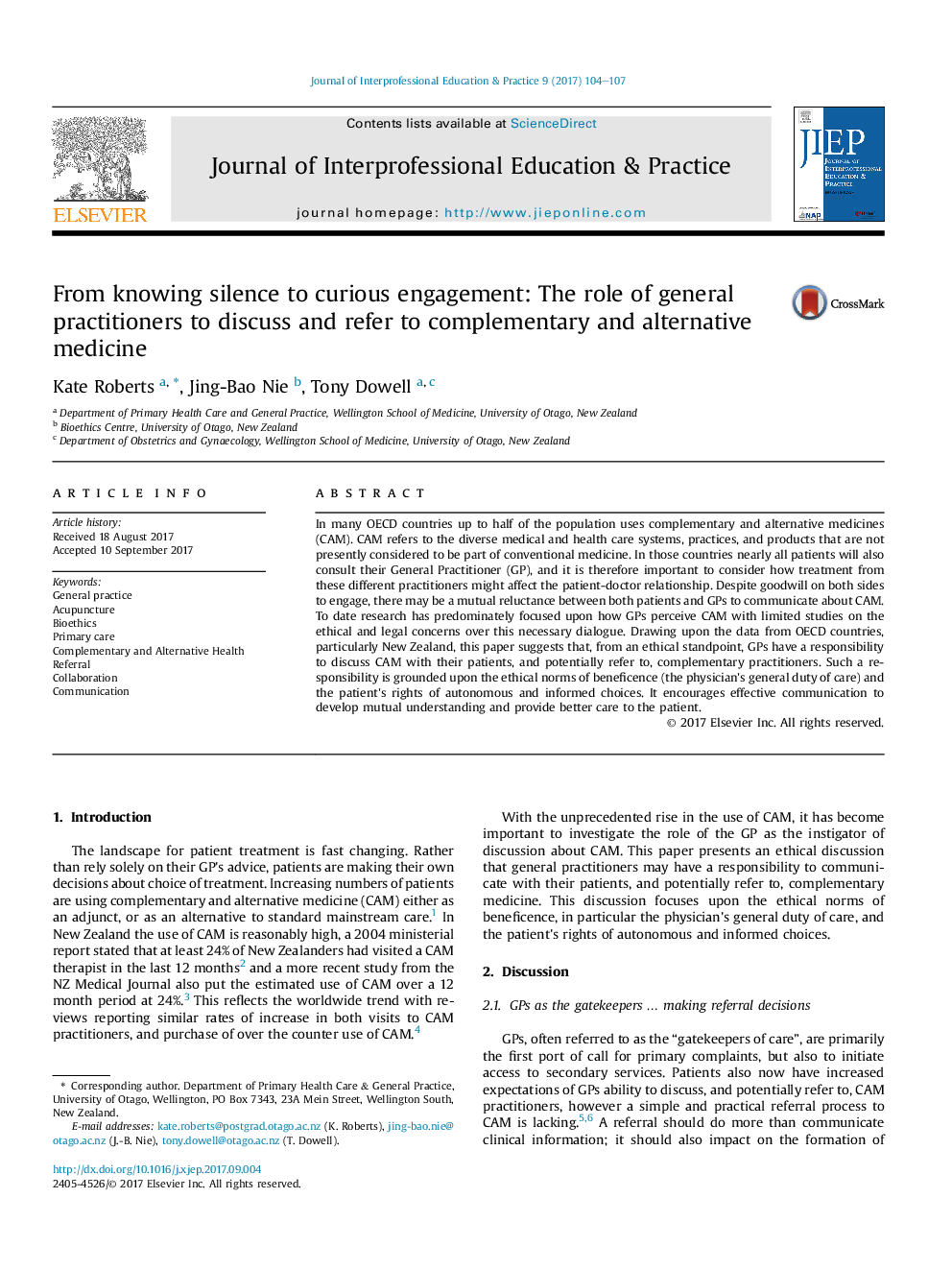| Article ID | Journal | Published Year | Pages | File Type |
|---|---|---|---|---|
| 5569389 | Journal of Interprofessional Education & Practice | 2017 | 4 Pages |
Abstract
In many OECD countries up to half of the population uses complementary and alternative medicines (CAM). CAM refers to the diverse medical and health care systems, practices, and products that are not presently considered to be part of conventional medicine. In those countries nearly all patients will also consult their General Practitioner (GP), and it is therefore important to consider how treatment from these different practitioners might affect the patient-doctor relationship. Despite goodwill on both sides to engage, there may be a mutual reluctance between both patients and GPs to communicate about CAM. To date research has predominately focused upon how GPs perceive CAM with limited studies on the ethical and legal concerns over this necessary dialogue. Drawing upon the data from OECD countries, particularly New Zealand, this paper suggests that, from an ethical standpoint, GPs have a responsibility to discuss CAM with their patients, and potentially refer to, complementary practitioners. Such a responsibility is grounded upon the ethical norms of beneficence (the physician's general duty of care) and the patient's rights of autonomous and informed choices. It encourages effective communication to develop mutual understanding and provide better care to the patient.
Related Topics
Health Sciences
Medicine and Dentistry
Public Health and Health Policy
Authors
Kate Roberts, Jing-Bao Nie, Tony Dowell,
